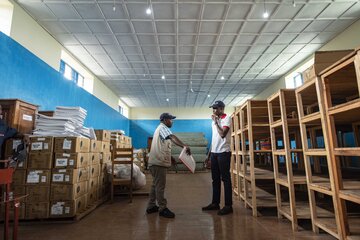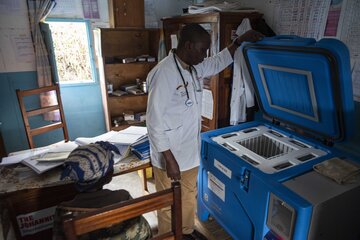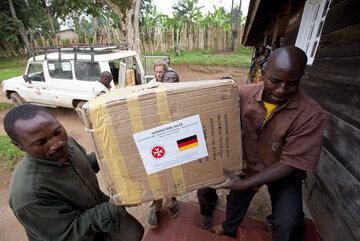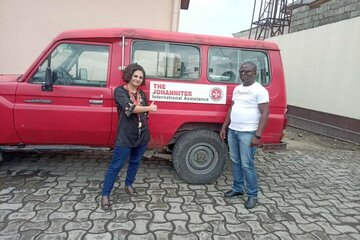Logistics Keeps Aid Running
Berlin / Goma, 14 April 2021
The blocked Suez Canal in March revealed to the world that transport has become a highly sensitive and perfectly timed process. However, if a stone gets stuck in the gears, entire supply chains are in danger of collapsing. That is why logistics today is not about muscle power, but rather about planning skills and leadership. This also applies to humanitarian aid.
How do medicines get from the warehouse to distant health stations? What has to be documented and adhered to? For 39-year-old Seçil Kuyucak in the Democratic Republic of Congo, these are questions she has to answer for herself and her team every day. The Turkish-Canadian specialist is responsible for logistics and the warehouse of the Johanniter office in the city of Goma.
Before joining Johanniter, she already worked for Doctors Without Borders and Welthungerhilfe in the country. DR Congo in particular is also very challenging from a logistical point of view: "What problems should I start with: The bad roads, the widespread corruption?", Seçil explains with a smile. Especially in the province of North Kivu, where Johanniter supports several health facilities, armed conflicts and Ebola outbreaks regularly complicate and change the situation.
Detailed inspection before the Last Mile
This makes it all the more important to have procurement processes that are as safeguarding as possible. For example, before procuring products for relief operations, licensed traders are checked to see if they meet the minimum requirements and standards. Upon delivery, the quality and completeness are checked by the logistics team. Seçil is assisted by her colleague Aimerance Biakuteka, who watches over the warehouse before the goods are sent on their way. And those journeys are often difficult.
Due to the distances, bad weather conditions or almost impassable roads, the vehicles often have to travel many hours and days to the health stations in the province of North Kivu. A few kilometres of travel can take hours. It is not without reason that the last mile to the recipient is one of the most expensive and time-consuming from a logistical point of view.
Seçil is relaxed about it. "Every job has its challenges," she says. What is most important, she says, is the close cooperation within the team. And in the end, when the relief supplies and medicines arrive, it is a very fulfilling job, she says. "I enjoy it, despite all the challenges."
International Quality Standards
Just as in other areas of life such as healthcare or food production, there are international quality standards that apply to humanitarian aid.




